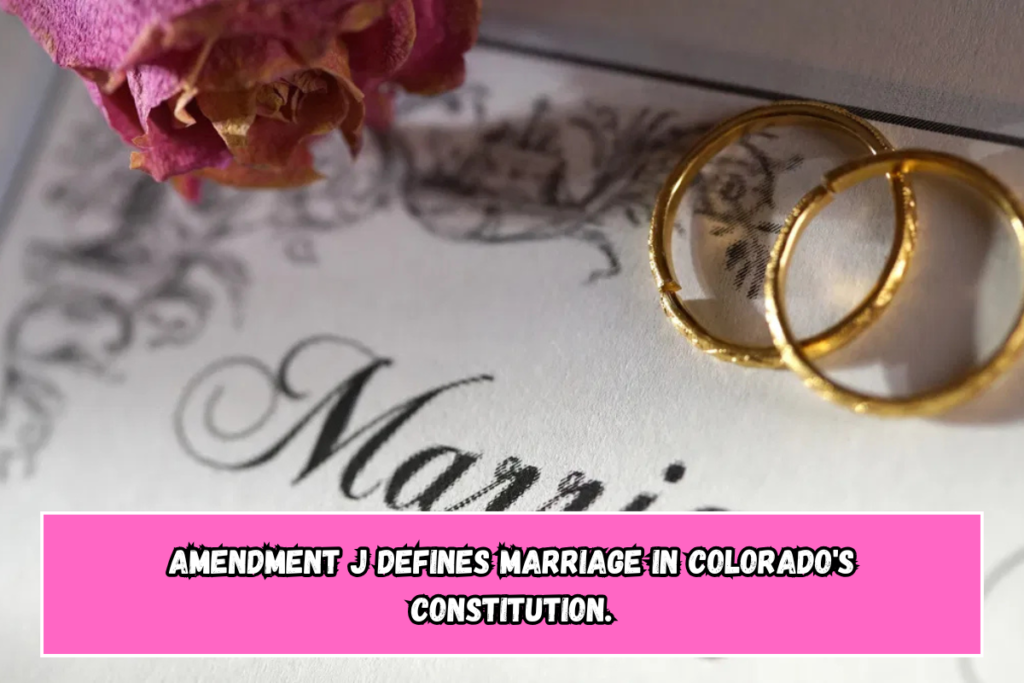There have been challenges to the amendment. For example, in 2014, an Adams County judge issued a 49-page order saying that the 2006 amendment was illegal, which made same-sex marriage legal in Colorado. That order is written at the end of this post.
The term was not taken out of the Colorado constitution, even though that decision was made. At that time, the Supreme Court did not hear any reasons against the decision, so the judge’s order stood. In 2015, after a year, the U.S. Supreme Court’s decision in Obergefell v. Hodges made sure that same-sex couples would have government protections.
Ballotpedia says that since then, bans on same-sex marriage have been overturned in 30 states. Now, Amendment J wants to get rid of the definition of marriage that was put in place in 2006 from the state’s law. Nevada did the same thing in 2020.
In this way, they are getting ready for the chance that the Obergefell v. Hodges decision will be overturned, just like Roe v. Wade was in 2022, which would mean that the case would go back to the states. John Wolfe and his husband Josh Franklin own the LGBTQ bar Icons. They said that is a fear they have.
Wolfe said, “With the election coming up, we don’t know how things will go at the federal level. This can protect our LGBTQ community and make sure that everyone is on the same playing field.”
He said he wants Amendment J to be passed. But State Representative Scott Bottoms (R-15) spoke out against Amendment J in front of his fellow lawmakers in Denver. There are no ongoing petitions against it before voters decide in November.
There shouldn’t be anyone telling other people they can’t get married or who they can. Rep. Bottoms said, “That decision is made by God alone, and he has already told us in the Bible.” “That doesn’t change just because we decide to change it between a man and a woman,” he said.
He also spoke out against the idea of marriage as a state institution, saying that it goes against what the Bible says about marriage, which is between a person or people and God. He said that the state shouldn’t say what marriage is and asked people to reject Amendment J.
Wolfe said that he doesn’t think religion should be a part of the law. Wolfe said, “I think we live in a great country that was built on religious freedom. I know that some people believe differently than me, but I don’t think that should be the law or something I have to do, and I won’t do the same.”
Both Wolfe and Rep. Bottoms said that this choice comes down to whether or not the state’s constitution shows what the state stands for, even without federal protections.
Rep. Bottoms fought for keeping the state’s definition of marriage even though he was against having the government define marriage. He said it was more in line with his own definition and the Bible’s definition.
She said, “If you want what God says is marriage, because he made it, then you have to follow his rules.” Wolfe, on the other hand, said that the constitution’s definition shows an older, less fair, and more discriminatory way of thinking that shouldn’t be mirrored in modern laws.
Wolfe said, “I think we’ve come so far in great ways in the last ten years or so, especially in Colorado Springs. I think that language is a little out of date; it doesn’t quite reflect who we are as a community now.”
You will be able to vote on Amendment J in November. If you want to vote, you have to turn in your ticket by 7 p.m. on November 5.


